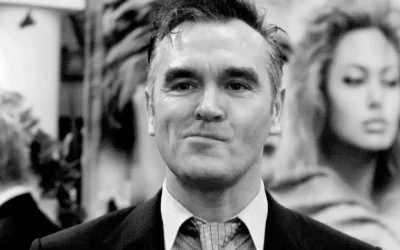Criticism is mounting against the London Organising Committee of the Olympic Games (LOCOG), which is refusing to disclose the number and price of tickets sold for this year’s summer games. Facing complaints from the London Assembly, Mayor Boris Johnson called for greater transparency. “I fully share the desire of the assembly for transparency and we will be raising this at the Olympic board,” Johnson told The Guardian.
Two years ago, London’s Olympic organizers said that approximately 28 percent of tickets would cost no more than £20, but attempts to verify this amount have met resistance. LOCOG refuses to release the numbers until after it conducts final sales.
“We are committed to providing a full breakdown of ticket sales, and believe the best time to do this is once we have completed the final sales process,” said LOCOG officials.
Approximately 75 percent of the 8.8 million Olympic tickets available have gone on-sale to the public. As in other Olympics, the population of the hosting country has a significant advantage when purchasing tickets to Olympic Games and related events. Olympic organizers have chosen to distribute tickets through a three round application process. In each round, people can apply for a set number of tickets from the total 8.8 million, providing credit card information with the belief that doing so would secure a specific ticket. The first round concluded in April with 1.2 million applicants failing to receive tickets. After the second round ended in June, about 20,000 remained without tickets, despite having applied in both rounds.
Confusion has arisen over the ballot-round system. Australia’s Herald Sun reports that 22 million ticket requests were made. Only 1.9 million Britons out of a 62.3 million-person population, however, applied for Olympic tickets through the lottery.
“Somehow the advertising hoardings didn’t tell any of us that entering a ticket ballot system, which appears confusing and took money from accounts before advising of any success, was essential for ticket sales more than a year later,” complains Jacquelin Magnay of The Telegraph.
To further complicate matters, the number of available tickets is fluctuating based upon the facility. According to The Guardian, fans of equestrian cross-country racing face 15,000 fewer seats even though capacity for the cycling event has risen to 15,000.
LOCOG’s secrecy has worsened public opinion and produced dismay in the London Assembly. Last week, the Assembly’s Economic, Culture, and Sport (ECS) Committee issued a report entitled “Sold Out?” The report targeted LOCOG for allegedly hiding behind its immunity as a private company. “LOCOG’s legal status should not excuse [it] from the transparency and openness we expect in other areas of public life,” argued ECS’s chairwoman, Dee Doocey, according to The Yorkshire Post.
Unlike public authorities, private companies are not subject to Freedom of Information requests in the United Kingdom. According to Britain’s Freedom of Information Act (FOIA) of 2000, “Any person making a request for information to a public authority is entitled to be informed in writing by the public authority whether it holds information of the description specified in the request and if that is the case, to have that information communicated to him.” In other words, any public entity must respond to a FOIA request by either denying that it has the requested information, or by providing the information if it does.
Critics of LOCOG’s policies say that the public deserves answers because of its large financial investment in London’s Olympic and Paralympic Games. So far, £9.3 billion (U.S. $14,566,590,000) in taxpayer money has gone to the Olympics.
“It is completely unacceptable that an organization that only exists because of a huge investment of public money can hide behind its status as a private company to avoid questions it does not like,” said Doocey.
Responding to the mayor’s comments, Doocey warned that transparency will only matter if applied before final sales go through. Otherwise, unfair ticket distribution may occur without regulation by the assembly.
The remaining 1.3 million tickets go on-sale in the third and final round, beginning in April 2012.



